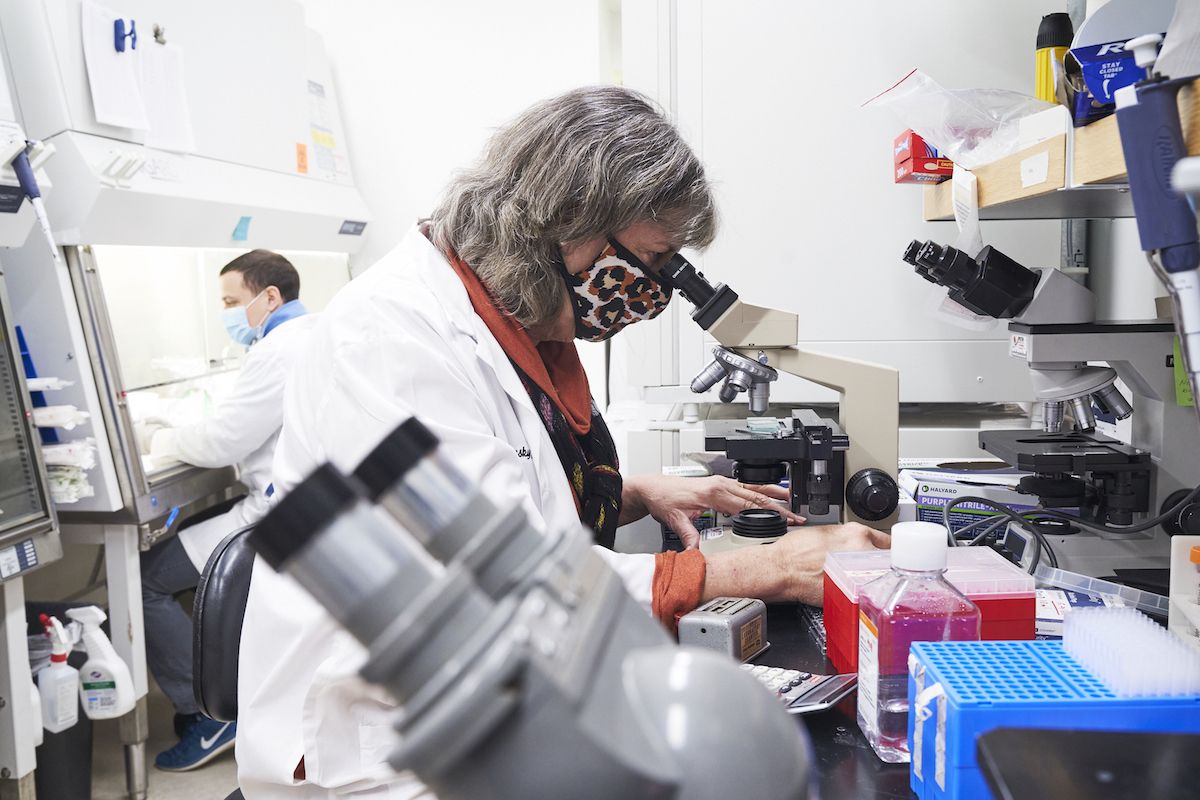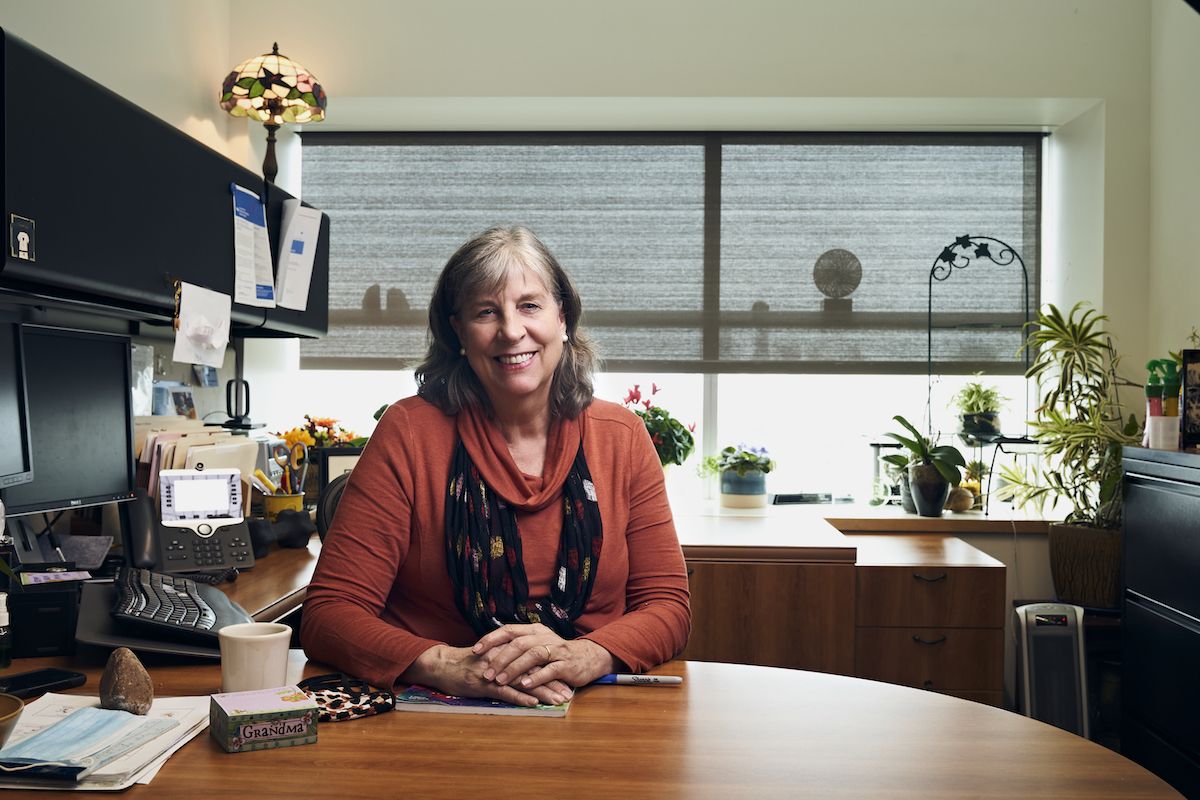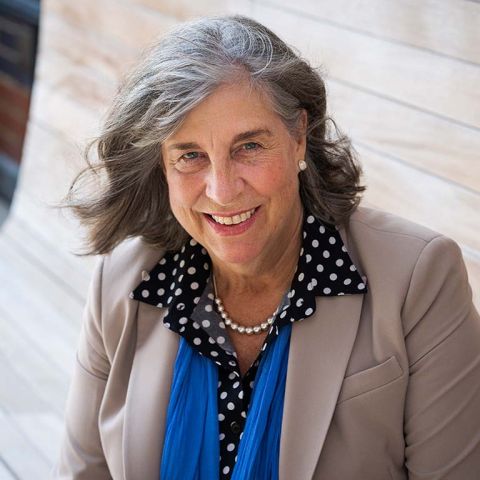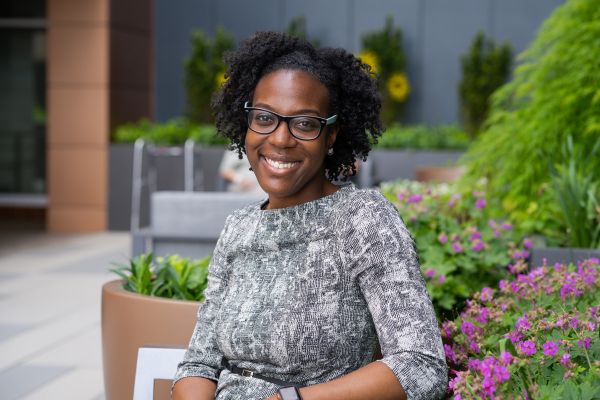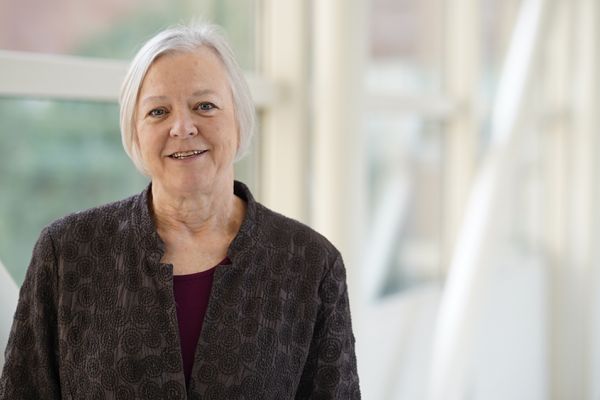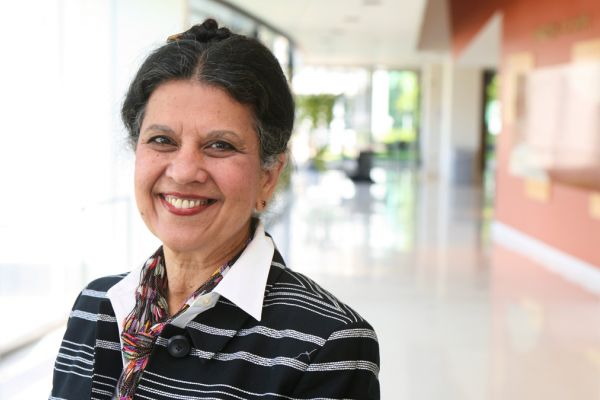Earlier in her life, Elizabeth Repasky, PhD, thought she’d be considering retirement when she reached this point in her career. But Roswell Park Comprehensive Cancer Center’s Interim Chair of Immunology is surprised to find that she and the members of her lab “are doing some of the most exciting work we’ve ever done right now.”
Among other projects, they’re looking for ways to harness the power of stress to make allogeneic bone marrow transplants safer, improve outcomes for radiation and immunotherapies, and provide a new treatment strategy for patients with advanced melanoma.
While pursuing new frontiers in immunology research, Dr. Repasky mentors younger scientists. Over the course of her career, she has served as major advisor to 23 doctoral students and introduced hosts of others to the challenges and rewards of cancer research.
Dr. Repasky earned a PhD in anatomy from the State University of New York at Buffalo and completed a postdoctoral fellowship in cell biology at the California Institute of Technology (Caltech).
Here she talks about her development as a scientist. Stay tuned for a second article exploring her team’s current investigations in the laboratory and their collaborative research with Roswell Park clinicians.
Q: When did you first become fascinated by science?
A: I don’t remember when I wasn’t interested in science and research. However, in my early days I imagined myself more as an ecologist or a forest ranger, walking through the woods and knowing a lot about plants and animals, and mosses and fish. A quality that has stuck with me through my whole life is curiosity and reverence for life. I have a very deep appreciation for the complexities and mysteries of biology, and I feel challenged, blessed and honored to be able to study living cells — even cancer cells.
Q: How did those interests develop when you were in school?
A: I credit my high school and college teachers for their enthusiasm and gift for inspiring their students to become scientists. I was largely trained in science by the Sisters of Charity in Greensburg, Pennsylvania.
My high school biology teacher, Sister Alexine, was the most enthusiastic woman you can possibly imagine. She thought of all kinds of neat experiments we could do in her laboratory and helped us make posters for science fairs. My college biology professor was Sister Ann Infanger, a geneticist with a PhD from Cornell.
These strong women were very positive about science careers for women, giving me a great deal of confidence. I didn’t realize at the time how amazing they were in terms of their commitment to being great teachers and mentors. I was inspired by them.
Q: Did you ever feel overlooked or less confident in high school science classes because of your gender?
A: Truthfully, I never felt a bias against me as a woman. I feel I came into my career strong and very confident from my college days.
I went to Seton Hill College in Greensburg, Pennsylvania. It was an all-women’s school that has since become a university, and co-ed. I think I benefited from the environment at Seton Hill because I never felt there was anything I couldn’t do as a woman.
Also, for many young women at that age, you don’t want to stand out or be different; it may not be so much about being a girl as just certain personalities. I was so tall — I was six feet tall even then — that I wasn’t able to shrink into the background.
Q: What was your major in college, and how were you drawn to immunology?
A: I did not start out knowing I wanted to be an immunologist. My undergraduate major was biology in its broadest sense. I had tremendous teachers of genetics, math, chemistry and physics, and I am happy that I had a very broad liberal arts training at Seton Hill. As much as my science courses, my writing and literature courses have been critical to my career.
I did a PhD in anatomical sciences, and I also have a strong background in physiology. I became interested in immunology only after my postdoctoral fellowship in cell biology. My background as an immunologist is unusually broad.
At that time (the 1980s), tumor immunology was just limping along — almost an ignored field in the sphere of cancer research. Now it has become the most exciting field to be a part of.
I also have a lot of basic medical school background. My PhD in anatomy is very similar to the first two years of medical school. I really appreciate that broad background in physiology and anatomy when it comes to the research questions I’ve taken up — which again, looking back, are fairly unique in the world of tumor immunology.
Q: How did you arrive at Roswell Park?
A: I did a postdoc at a very competitive, high-powered place, the California Institute of Technology in Pasadena — Caltech. But I also got married around that time, and my husband [John Subjeck, PhD, now Professor Emeritus of Oncology at Roswell Park], got a research position in Radiation Medicine here at Roswell Park. I had done my PhD at the State University of New York at Buffalo, so I was aware of Roswell Park, but my training as a postdoctoral fellow was leading me more toward molecular / cellular biology.
I was very fortunate to be able to get a position — initially in Radiation Medicine — at Roswell Park, sharing a lab with my husband. It wasn’t until a few years later that I was given my first independent position in the Department of Immunology by Tom Tomasi [Thomas Tomasi, MD, PhD, Professor of Immunology and former President and CEO of Roswell Park]. Then I worked my way up, just as everybody else does, through assistant, associate and full professor.
Q: Was it difficult to pursue your research career as a wife and mother?
A: Absolutely, and this is true for men as well as women. But I feel that this has changed over the last 30 years. I think there’s a lot more understanding of the difficulty of having babies and trying to write grants and run your laboratory and mentor students. It’s something that’s much more understood and supported now.
I was extremely fortunate to have a very supportive husband. John still does most of the cooking and was really a great father, but there were times when we were both writing grants at the same time. It was hard. I can remember pumping milk in secret, bringing my baby son into work so many times. It wasn’t a good idea to do that. But then there were no rules or restrictions.
My family was, and is, extremely supportive. That has been essential to my career. I have also been fortunate to be able to rely on two very strong women in my lab, Dr. Bonnie Hylander and Jeanne Prendergast, both of whom are lifelong friends as well. We all had our children at about the same time. I don’t know what I would have done without their help and support in my lab, which continues to this day.
Never miss another Cancer Talk blog!
Sign up to receive our monthly Cancer Talk e-newsletter.
Q: Talk a bit about your role as a teacher.
A: I enjoy teaching, and I wish I had time to do it better. We have a great graduate program at Roswell Park, and I think we get some of the best future scientists in the world here. I feel my laboratory mentorship takes up more of my time at this point than actually teaching through lectures. I give only about five or six lectures a year, and it’s something I wish I could do more.
Q: Do you keep in touch with former students? Where are they now?
A: Yes, but not as much as I would like! Luckily, some are right here at Roswell or in the UB/Buffalo community. One is Katie (Kathleen) Kokolus, who graduated with her PhD in about 2014, then went off to Penn State for a postdoc. Now she has just obtained her first grant as a junior faculty member. Most of my students are involved in academia or biotech, and many are tenure-track faculty or clinicians all over the United States and in other countries as well.
I want to thank my laboratory team and all the students I’ve ever had. I’ve been blessed with a great lab. I love being a lab director when you have people like this to work with.
